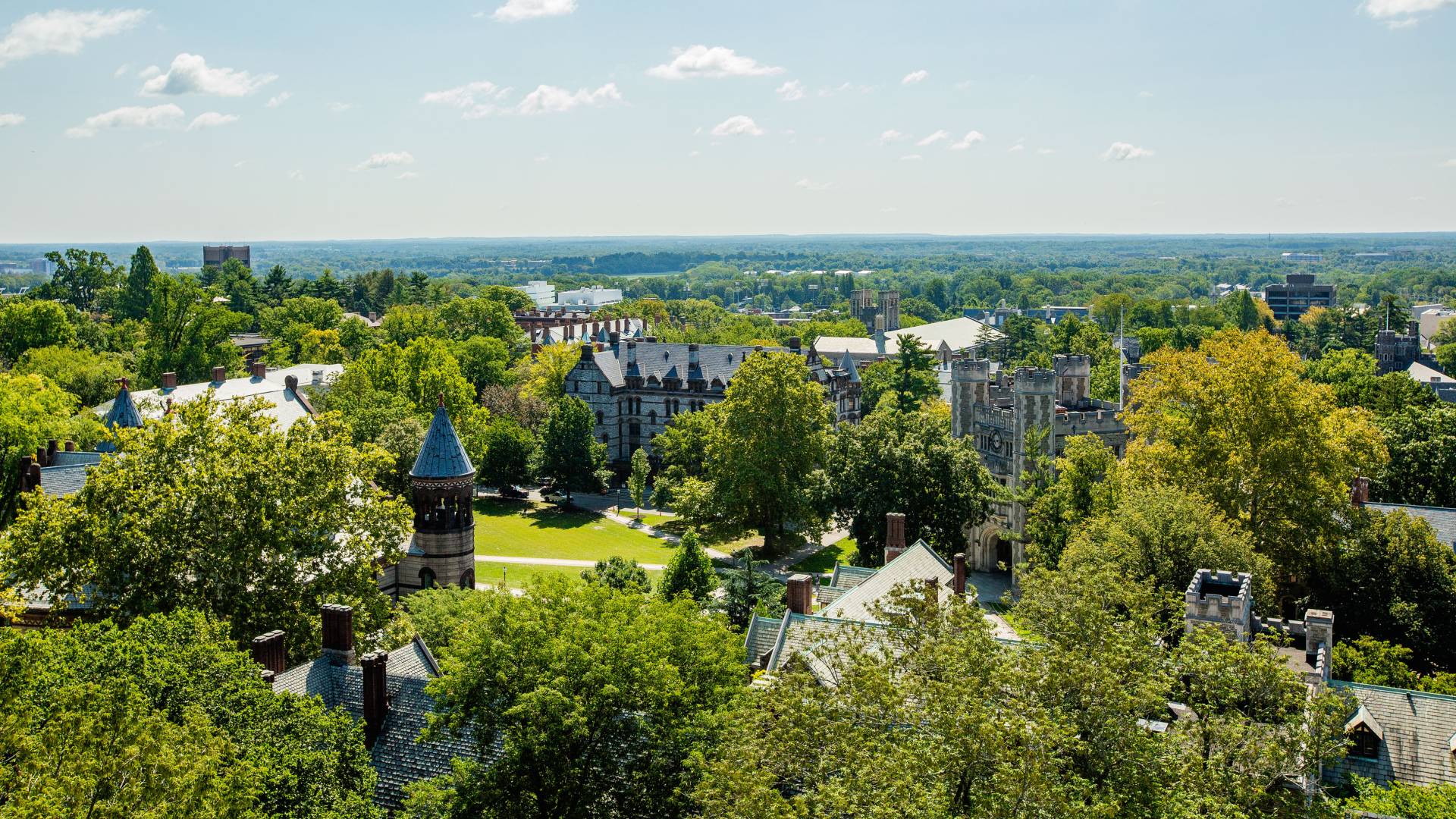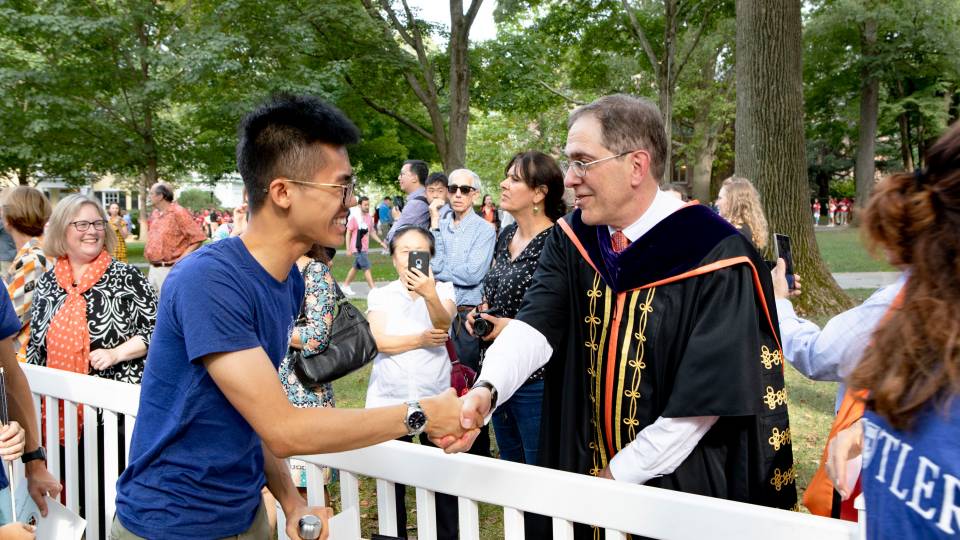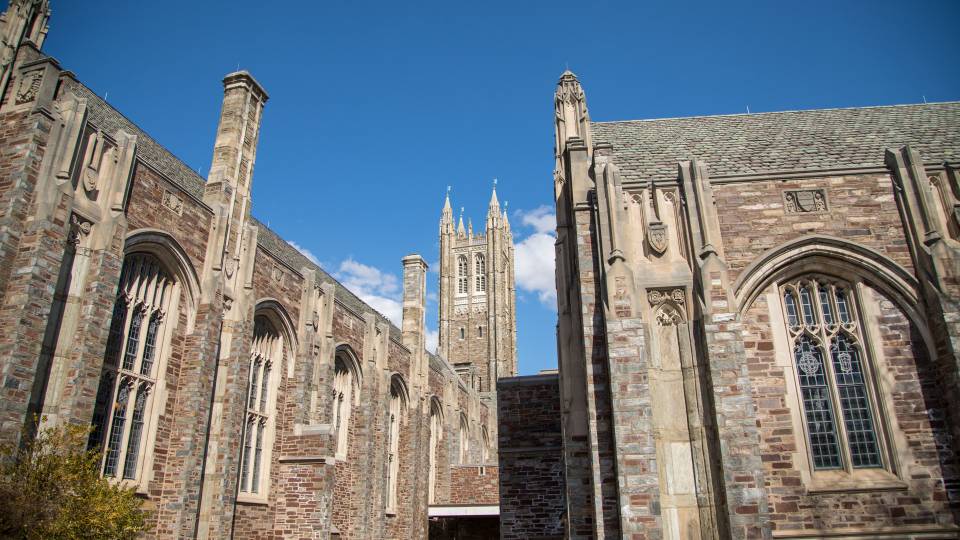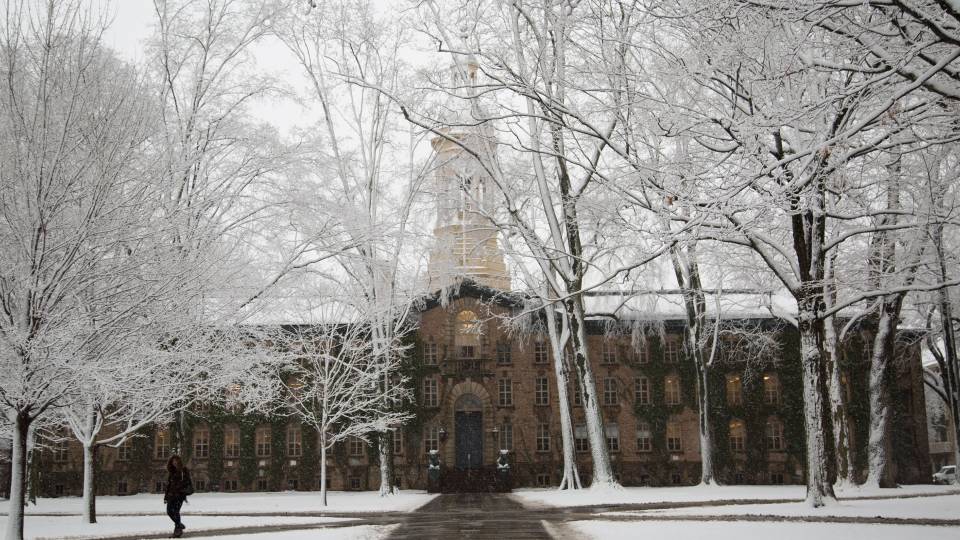Princeton President Christopher L. Eisgruber updated the campus community about progress on goals identified through the strategic planning process and reflected on issues facing the University in a letter sent today to faculty, staff and students. Eisgruber said his first President's Letter was an opportunity to highlight ongoing initiatives and discuss priorities for the coming year.
"Last year, the University's Board of Trustees issued a strategic framework that set forth a vision for Princeton's future. In the 12 months since we published that document, I have had numerous opportunities to discuss it with faculty, students, alumni, staff, and friends of the University," Eisgruber said in his letter. "Multiple people have recommended that I provide the University community with an annual update that describes our progress and reflects on major issues confronting the University. I'm delighted to do so, and with this letter, I begin that practice."
Eisgruber's message focused on the rapidly increasing socioeconomic diversity of undergraduates, the implementation of strategic planning recommendations, and how the University supports ongoing and new initiatives through the endowment and fundraising.
Eisgruber will talk about the state of the University and invite questions at two events this month: The annual town hall meeting of the Council of the Princeton University Community (CPUC) at 4:30 p.m. Feb. 20, in Friend Center, Room 101, that is open to all members of the University community; and a town hall meeting for staff members at 2 p.m. Feb. 24, in Richardson Auditorium, Alexander Hall.
In his letter, Eisgruber highlighted the University's "exceptional progress this year" toward increasing the socioeconomic diversity of undergraduate students. This year's freshman Class of 2020 is the most socioeconomically diverse in Princeton's history, with 21 percent of the class eligible for Pell grants for low-income students.
"Since Princeton implemented its path-breaking improvements to financial aid more than 15 years ago, this University has been one of the most affordable places for a low-income student to get a college degree," Eisgruber said.
Identifying and attracting more qualified students from low-income families is essential to the University's goal of seeking talented students from all sectors of society, and also furthers Princeton's ability to help increase socioeconomic mobility, Eisgruber wrote.
"In the United States, obtaining a four-year college degree has a dramatic impact upon whether students from lower income quintiles move into higher ones," he said. "And students from the lowest income quintiles have the highest chances of successfully completing their degrees, and thus the greatest opportunity for social mobility, if they attend a university like Princeton that provides strong financial aid, maintains high academic standards, and offers the personalized support needed to overcome barriers and disadvantages."
Eisgruber said the University will continue to expand efforts to recruit students from low-income backgrounds and provide campus resources that empower them to thrive while they are here. He added that Princeton also has been a national leader in this effort, noting his work on the steering committee of the American Talent Initiative, which seeks to increase the number of socioeconomically disadvantaged students at top universities across the country.
"More work will be required to sustain this change and ensure that this vibrant and important group of students flourishes at Princeton," he said.
Eisgruber said the importance of Princeton's Graduate School was a recurring theme of the strategic planning process and the Graduate School is integral to the University's teaching and research mission. To provide greater support to Ph.D. students, the University has allocated more than $6 million annually to alleviate pressures on sponsored research funding in the natural sciences and engineering, and to provide new support for sixth-year graduate students in the humanities and social sciences who are progressing toward degree completion.
Among ongoing work on other strategic priorities, Eisgruber noted 10 themes that will "define the major part" of his agenda in the coming years. He said the University will work to:
- Achieve unsurpassed quality in all fields;
- Emphasize service;
- Expand the undergraduate student body, with planning already underway to add another 125 students per class;
- Enhance socioeconomic diversity;
- Attract and support talented people from all groups and backgrounds;
- Exercise visible leadership in the arts and the humanities;
- Provide outstanding research and teaching about the world's regions and cultures;
- Undertake a bold interdisciplinary initiative centered on the environmental sciences;
- Invest in engineering and information sciences; and
- Improve Princeton's connections to the innovation ecosystem.
To fund new priorities and maintain Princeton's excellence, Eisgruber said the University will continue to rely on the endowment and fundraising.
"Universities must be able to pay salaries sufficient to attract extraordinary faculty members. They must bear the costs of the high-quality laboratories and libraries needed for research and teaching, offer stipends that will attract and support the best graduate students, and grant financial aid to ensure that every qualified student can not only afford to attend but flourish on campus," Eisgruber said. "First-rate teaching and research are superb investments that provide outstanding value to individuals and to society, but they are not cheap."
The University relies heavily on the endowment to support its programs, including the University's generous financial aid packages that meet the full need of every aid student with grants that do not have to be repaid. But, Eisgruber said, the University also must fundraise to support new teaching and research priorities.
"As we seek resources to enhance an already blessed institution, the burden of proof will be on us to explain not only our priorities and our aspirations, but also the economic model that supports Princeton's quest for excellence," he said. "Why, people want to know, does a university with an endowment so large need to raise more funds? The answer to that question is straightforward: our endowment is nearly fully deployed in support of existing programs, so that new initiatives require new fundraising. "
In closing, Eisgruber said he appreciated the opportunity to work with students, faculty, staff, alumni and friends to help carry forward the mission of Princeton.
"At a time when the world too often focuses on short-term interests and when public discourse has become disturbingly coarse and shallow, Princeton University's commitments to teaching and research of unsurpassed quality, and to the service of the nation and humanity, are more valuable than ever," he said.



